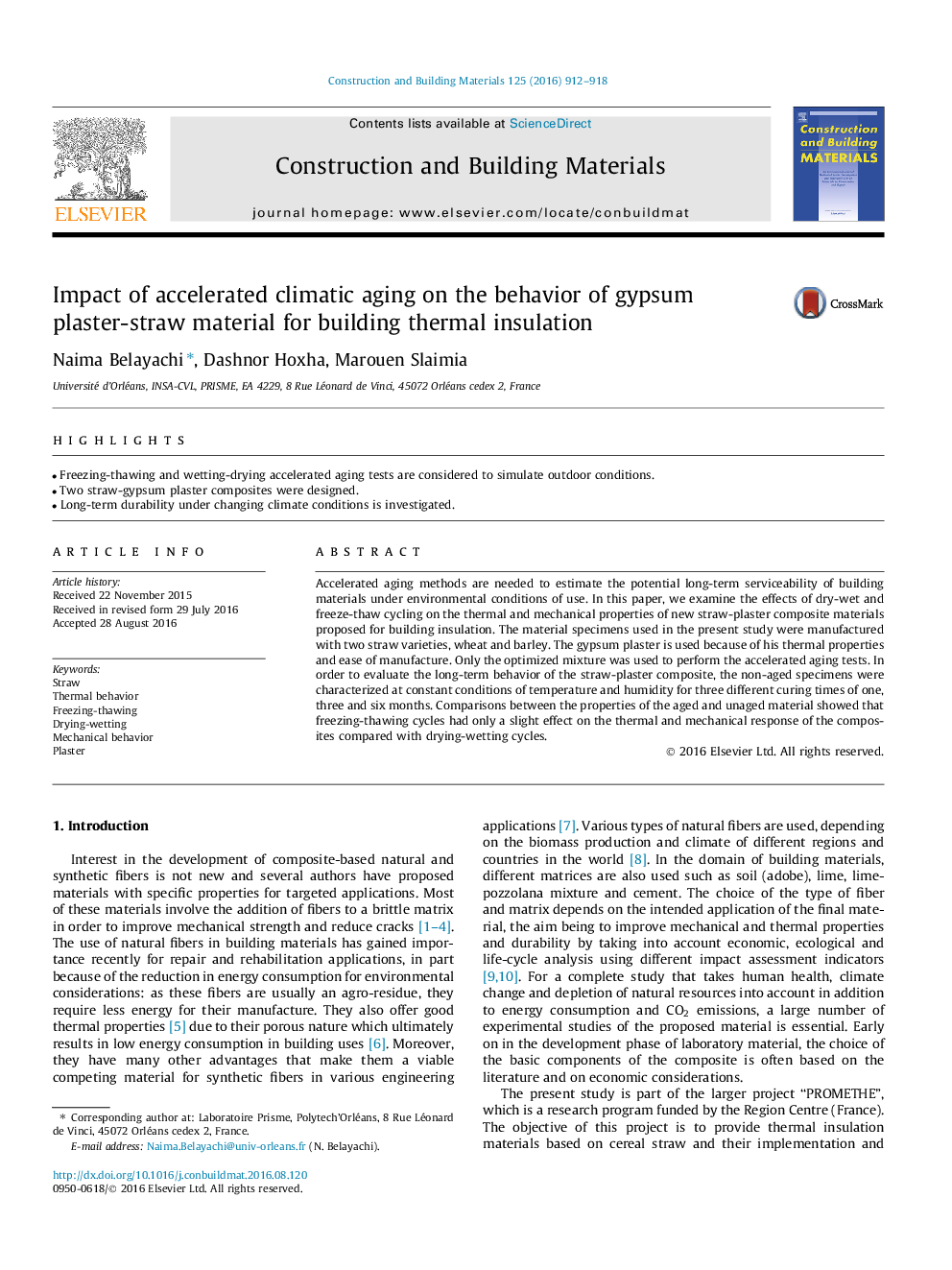| Article ID | Journal | Published Year | Pages | File Type |
|---|---|---|---|---|
| 4918678 | Construction and Building Materials | 2016 | 7 Pages |
Abstract
Accelerated aging methods are needed to estimate the potential long-term serviceability of building materials under environmental conditions of use. In this paper, we examine the effects of dry-wet and freeze-thaw cycling on the thermal and mechanical properties of new straw-plaster composite materials proposed for building insulation. The material specimens used in the present study were manufactured with two straw varieties, wheat and barley. The gypsum plaster is used because of his thermal properties and ease of manufacture. Only the optimized mixture was used to perform the accelerated aging tests. In order to evaluate the long-term behavior of the straw-plaster composite, the non-aged specimens were characterized at constant conditions of temperature and humidity for three different curing times of one, three and six months. Comparisons between the properties of the aged and unaged material showed that freezing-thawing cycles had only a slight effect on the thermal and mechanical response of the composites compared with drying-wetting cycles.
Related Topics
Physical Sciences and Engineering
Engineering
Civil and Structural Engineering
Authors
Naima Belayachi, Dashnor Hoxha, Marouen Slaimia,
